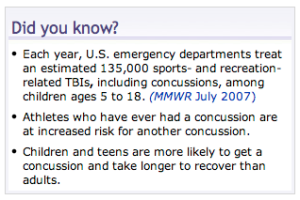It was nearing the end of the third quarter of my brother’s basketball game the day after Thanksgiving of his junior year in high school. He stood his ground and took an offensive charge. Down he went, sliding a few feet. After the call was made, he popped right back up and resumed play. For the remainder of the game he led the team as their point guard. Running plays, playing tight defense taking command. Per usual, once the final buzzer went off, he met my parents before going to the locker room to shower and change and then board the bus back to school. Mom, dad and I got in the car and started driving home. About twenty minutes into the ride there was a call on the cell phone. We needed to turn around, the bus was headed to the hospital.
Once my brother got into the locker he was dazed, confused. He didn’t know where he was and that he had just played a basketball game. He didn’t know what day it was or that we had celebrated Thanksgiving the day before. All he knew were the phone numbers to my parents. He rattled those off without a hitch. Signs of a concussion were setting in.

Concussions are a major topic in the sports world these days. Seventy-four former NFL players filed lawsuits against the league saying they concealed information on the dangers of concussions. The players claim they have problems such as blurred vision, migraines, memory loss, dementia and anxiety to name just a few.
Several NHL hockey players have been blind-sided and sit for much of their season. In some cases, ending their career. Soccer, football, ice hockey and boxing have the highest rate of reported concussions. Concussions don’t always happen on the athletic field. Snow skiing, bicycling, and play ground activities are common ways to sustain a concussion as well.
What is a concussion? It is a brain injury that:
- is caused by a bump or blow to the head and/or body
- can occur in a practice or game of any sport
- can change the way your brain works
- headache
- nausea or vomiting
- dizziness, blurred vision
- confusion
- memory loss
- difficulty paying attention
- bothered by light or noise
- tell your parents or coaches
- seek medical attention
- rest, avoid play
- use proper fitting sports equipment
- practice good sportsmanship
- follow coaches and safety rules
In all the years I have played sports, I am fortunate to never have a concussion. Seeing some of my friends and family member that have can be quite frightening. I encourage you to seek medical help with any sign of a concussion. It could save your health down the road.

#1 by Courtney on July 24, 2011 - 2:28 pm
Good information. Thanks, Ann!